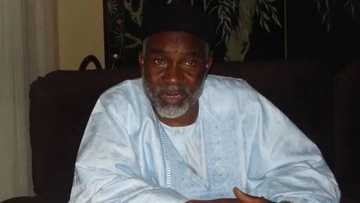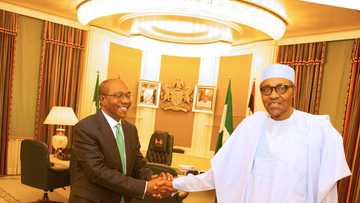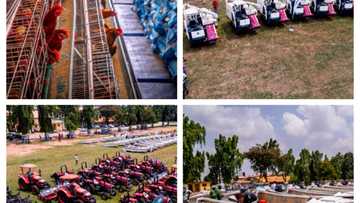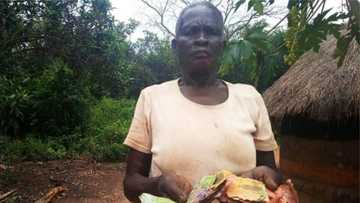How COVID-19 Financially Affects Nollywood Filmmakers, David Nweke, Lancelot Imasuen
- Nollywood industry is at the receiving end of the COVID-19 pandemic and the measures taken by the Federal and State Governments to curb the virus from spreading
- The cost of shooting movies skyrocketed by 66.6% within the second quarter and fourth quarter of last year, when compared to the corresponding period of 2019
- Expenses incurred to shoot one movie climbed as low as N3.5 million, and as high as N20 million depending on the content direction of the movie
Lancelot Imasuen is a notable Nigerian filmmaker with over 25 years of industry experience. Imasuen's success places him among the Nollywood Industry hall of fame.
With over 150 films to his credit, Imasuen has built a profitable career that enables him to rent or occupy a whole compound with three-bedroom flats in Surulere, for office use and family.

Read also
Rihanna, Dolly Parton, Kim Kardashian makes Forbes’ 7th annual list of America’s richest self-made women
But within a blink of an eye, that lifestyle changed, and Imasuen and family found themselves parking into just a three-bedroom flat for office and residential use as the pandemic created a financial burden on him.
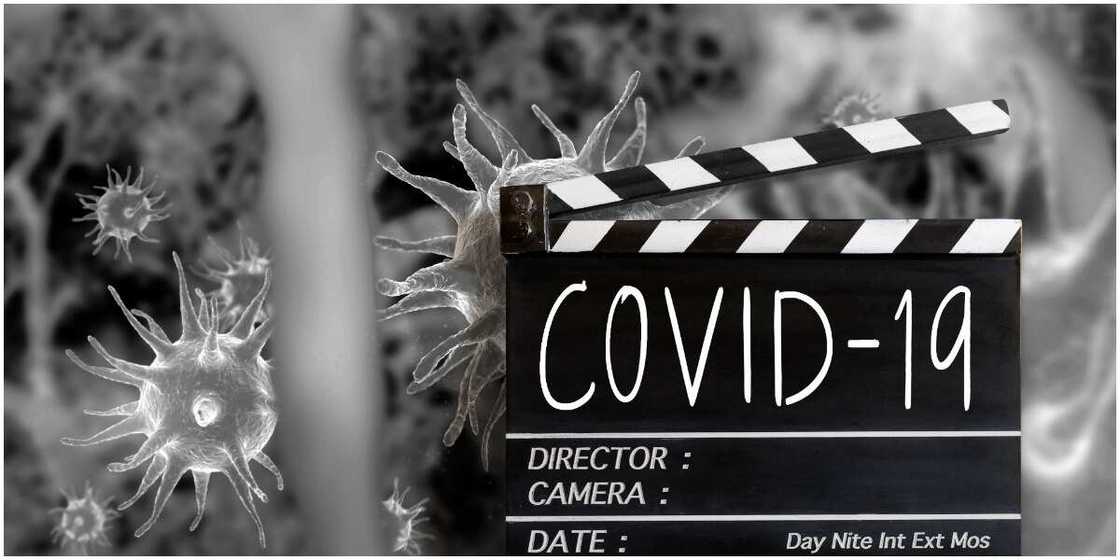
Source: Getty Images
Life before COVID-19 pandemic
Before the Coronavirus outbreak, some filmmakers, like Imasuen, were handling an average of five projects in a year, while actors and actresses also had a number of feature films with jumbo pay.
This was a norm for them as some always had their calendar year planned out before it starts or picks up jobs along the way, but then came February 27, 2020, Nigeria confirmed its first COVID-19 case, and everything changed for Imasuen and his industry colleagues.
President Muhammadu Buhari announced a lockdown in Nollywood's commercial hub, Lagos, with Ogun State, and the country's capital, Abuja, added to the no-movement list on March 29, 2020.
A new normal set in, and it was no longer business as usual for filmmakers and actors. For more than six months, activities were paralysed in Nollywood, as the industry was caught between the COVID-19 onslaught and the government's defence mechanism.
Nollywood financially struggle with new reality
The COVID-19 pandemic and the lockdown threw the Nollywood industry into a new reality, challenging them creatively, while also increasing their financial burden after the restriction was eased, Legit.ng gathered from practitioners.
The multiple-award-winning Nigerian filmmaker, Imasuen, was one of the practitioners caught between the faceoff as the project for the year dropped to one, against the average five prior to COVID-19.
Imasuen, who is currently shooting a COVID-19 impacted movie, 'Gbege', told Legit.ng that the financial impact of the pandemic can't be overemphasised.
He said the cost of shooting rose by 66.6% against projection prior to COVID-19, stating that:
"If we were to spend N30 million, we ended up spending like N50 million."
Aside from the impact it had on the cost of production, Imasuen also had to quit the whole compound he rented for office and residential space as the rent fee increased by 75% during the tick of the virus breakout.
The landlord demanded that the 50-year-old filmmaker pay N3.5 million to renew rent, for a property space that was worth N2 million before COVID hit.
But he wasn't the only one that was struggling with this new reality. David Nweke, another Nollywood filmmaker was also challenged financially.
Nweke said every department of his production was affected. He said they incurred extra expenses of N3.5 million on the project, leading to the decision to strike out some sets, which affected the cast and crew.
"As a matter of fact, a whole lot of money was gone."
He estimated that between N6 million to N7 million was lost on two projects last year, and his production team could only complete one by year-end - Legit.ng understands that before 2020, Nweke completes six to seven standard projects.
For an actor, Tolulope Odebunmi, the coronavirus outbreak limited access to roles for upcoming actors and actresses as filmmakers decided to cut auditions and feature those they are familiar with, but some were accepting audiovisual auditions.
Although Odebunmi said he had a good year in 2020, the actor confirmed to Legit.ng that the payment for roles dropped during the same period filmmakers engaged in cost-saving.
Saved by streaming platform, ignored by government
The impact of COVID-19 wasn't just on the 2020 projects, it also nearly crippled projects completed in the corresponding year as filmmakers couldn't screen their movies at the cinemas.
In 2019, Nollywood filmmakers grossed about N1.21 billion from about twenty movies screened at the cinema, but between April to October 2020, the industry recorded zero revenue due to restriction of movement and ban on cinema operation.
A statement from the Cinema Exhibitors Association of Nigeria stated that movies scheduled for Q2 and Q3, such as Toyin Abraham’s Fate of Alakada, Kambili, Going Bananas, 2 Weeks in Lagos, Lemonade and The Good Husband, amongst many others, were postponed, getting a later release date in Q4 2020.
In order to salvage the situation, streaming platforms approached Nollywood filmmakers to buy movies that were destined for the cinema before the virus outbreak - one of which is the controversial 'Oloture'.
Confirming the growing relationship between streaming platforms and Nollywood filmmakers in the absence of cinema, Imasuen stated he had a deal with Showmax to show his movie, while an unnamed YouTube streaming channel also did the same, but the latter is yet to pay.
In the midst of the shutdown, the government approached the Nollywood industry, but nothing resulted from the meeting, Imasuen told Legit.ng, and actor, Odebunmi, confirmed the filmmaker's statement.
Both Imasuen and Nweke call on the government to show more support to the Nollywood industry, considering the impact of filmmaking on the economy of Nigeria.
Nollywood actress, Sola Sobowale, warns about COVID-19
Legit.ng had previously reported that veteran Nollywood actress, Sola Sobowale, advised Nigerians to obey the COVID-19 pandemic directive of the government.
Sobowale, in a social media post, said anybody can contract the virus. She said it is important to follow instructions in order not to be treated like plagues.
According to her, contracting the coronavirus could result into people being treated as an outcast due to fear associated with it.
Source: Legit.ng


